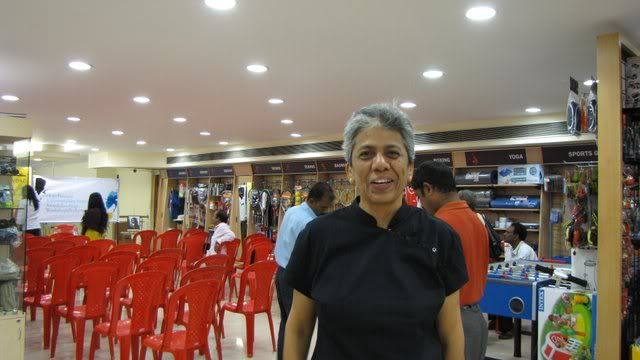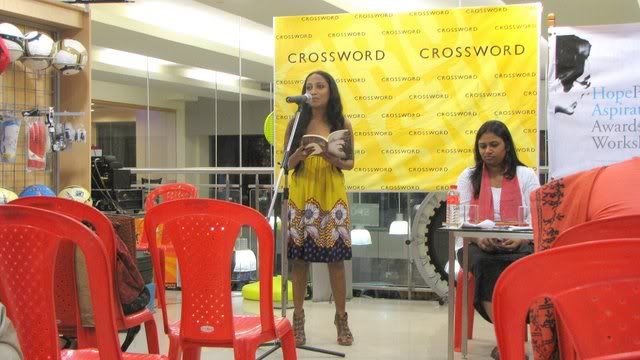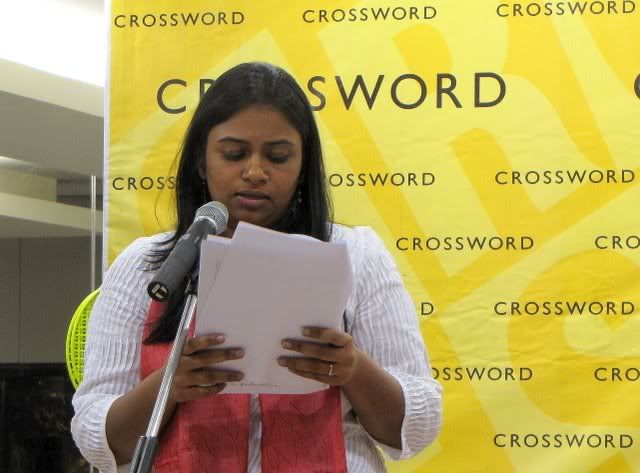an organization that recognizes, awards and encourages young artists in their endeavours, had organized their September reading at
Here’s the blurb from TFA:
Sharanya Manivannan’s first book of poems, Witchcraft, was described in The Straits Times as "sensuous and spiritual, delicate and dangerous and as full as the moon reflected in a knife". Her poetry and fiction have also been published in Drunken Boat, Ghoti, Softblow, Pratilipi and elsewhere, and a personal column, "The Venus Flytrap", appears in The New Indian Express. Sharanya lives in Chennai.
www.sharanyamanivannan.com
Sruthi Krishnan is a Chennai-based journalist. Previously, she reported on technology at The Hindu after graduating from the Asian College of Journalism. She was a software engineer in a previous lifetime, with around five years of experience in an IT major. She writes short stories and hopes to write longer ones.
C K Meena, whose column and writing I am a staunch fan of, inaugurated the proceedings on behalf of TFA:
Here is Sharanya, reading from her poems:
And here’s Sruthi, reading from her (as yet unpublished) short stories:
Some of the poems and short stories were very interesting…I never realized that I would be so moved by a description of sweat! To appreciate others, I need to have a better context, rather than suddenly hearing the words/ story being read out in a bookstore.Sruthis attempt, as she put it, to get into the skin of a character with a viewpoint diametricaly opposite to her own,was a telling short story, and dealt with harassment and sexual abuse.With a couple of Sharanya’s poems, I could not empathize with the depth of the feeling; to me, they remained just a clever collection of words. This is why, to me, poety must be read, and digested, in solitude and tranquillity. In almost all other art forms, the presence of the aritist is usually a great help in appreciating their creative output….but poetry, to me, is an exception.
Sharanya’s treatment of the concept of exile (as she said, she was comparing Sita, who was exiled in the paradise of the Ashoka vana, and Lucifer, who was exiled from Paradise) was both distubring and touching. I had not realized her background, and during the discussion that took place, another member of the audience asked her about the political backlash that occured when she described the Malaysian government in terms of apartheid.
A discussion followed the reading, but unfortunately was rather sidetracked by one member of the audience who did not seem to know what she was asking, and kept trying to club together the work of two very different writers. This made the program run far longer than it should have, and some of us had to leave without participating in the discussion or getting closure on the reading! ⊕


